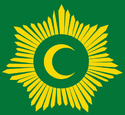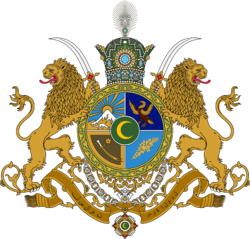Agra: Difference between revisions
No edit summary |
(please don’t use my real name in articles) |
||
| Line 25: | Line 25: | ||
Apart from the story of how the city got its name, little is known. New argeological discoveries are regularly made, giving a window into history. Because of its size and grandeur, the Red Fortress is a feature of the site's rich history. | Apart from the story of how the city got its name, little is known. New argeological discoveries are regularly made, giving a window into history. Because of its size and grandeur, the Red Fortress is a feature of the site's rich history. | ||
This Red Fortress was restored by | This Red Fortress was restored by the Khan of Krasnarus. In the end, this Khan did not stay there overnight. Jovan, King of Krasnocoria, organised the peace talks in the Red Fortress to end the [[Hasani War]]. | ||
=== Reestablishment === | === Reestablishment === | ||
Revision as of 03:00, 12 April 2021
| Agra أغرا आगरा | |||
| City of Çakaristan | |||
| |||
| Motto: Sultan's red jewel | |||
| |||
| Mayor | Mustaba el-Hoque | ||
| Population | 4,172,192 | ||
| Established | 1687 AN | ||
Agra (Arboric: أغرا; Adarani: आगरा), formally the District of Apollonia and also known as D.A. or Agra, D.A., is the capital of the Ultimate Çakar Sultanate. Founded after the Sylvanian National Awakening as the seat of government of the newly independent nation.
The city is strategically located on the Taw'am River. The city was founded in 1685 AN, at the same time as the sultanate was founded.
Etymology
The origin of the name Agra is shrouded in mystery. The name already seemed to exist in prehistoric times, before 1440 AN. The story goes that a prehistoric ruler sailed with his men on the Taw'am River, pointing towards a location that was ideal for building a city. The helmsman then said in ancient Adarani agra (अग्र, 'front'), to steer the ships in that direction. Since then, the location would have the name Agra.
History
Pre-1687
Apart from the story of how the city got its name, little is known. New argeological discoveries are regularly made, giving a window into history. Because of its size and grandeur, the Red Fortress is a feature of the site's rich history.
This Red Fortress was restored by the Khan of Krasnarus. In the end, this Khan did not stay there overnight. Jovan, King of Krasnocoria, organised the peace talks in the Red Fortress to end the Hasani War.
Reestablishment
The Sylvanian National Awakening officially ended after a sultan was appointed in the Red Fortress. Actually, the aim was to adopt a constitution, but the assembly did not agree. In order to prevent the young nation from becoming prey to foreign powers, only the sultan was appointed. The sultan made the Red Fortress his official residence.
By decree, the Residence Decree, the sultan determined that the new capital would be built around the Red Fortress. For this purpose, an area of Noganistan was isolated and formed into the District of Apollonia. The sultan sent surveyors to expel this new district, the boundaries of the district should not be visible from any point of the Red Fortress.
Sightseeings
The newly built city is carefully decorated, with a number of sights to admire:
| Image | Description |
|---|---|
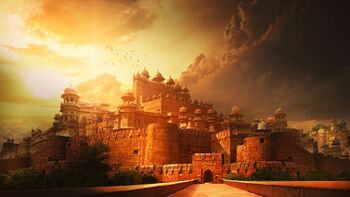
|
The Red Fortress is one of the few remnants of this city's mythical past. It was rebuilt by Ned Greiner, Khan or Krasnarus. Since the foundation of Çakaristan, this complex has been the official residence of the sultan. |
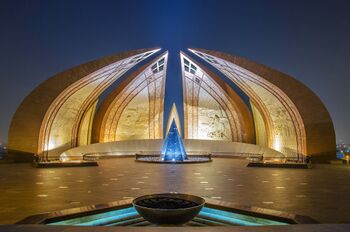
|
The national monument was commissioned by Akbar I, Sultan of Çakaristan, in memory of the victims of the Sylvanian National Awakening. The national commemoration is held here every year. |
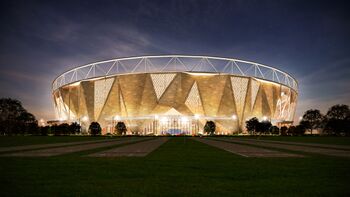
|
The football stadium of the Çakaristan national football team: Akbar Stadium. Named after the sultan. |
| ||||||||||||||||||||||||||||||||||||||||||||||||||||||||||||
